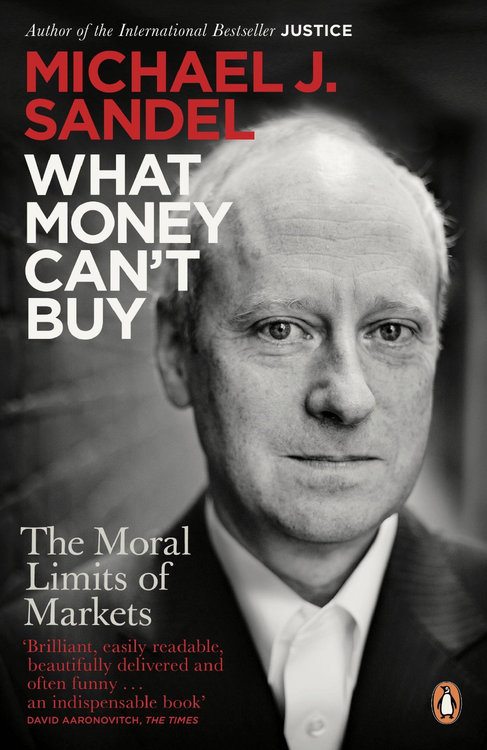What’s it about?
What Money Can’t Buy: The Moral Limits of Markets argues that over the last few decades we moved from having a market economy to being a market society—where price tags creep into areas once governed by civic norms. Sandel examines controversial “markets” (from paying to jump lines, to selling access to lawmakers, to trading pollution rights) and asks two tests for each: does it worsen inequality, and does it corrupt the meaning of the thing being bought and sold? The book is an invitation to public ethics: some goods are diminished when money buys them.
Book Review: What Money Can't Buy

by Michael J. Sandel
Published: 2012
Review published: September 8, 2025
What I Learned / My Take
1. A line isn’t just a queue—it’s a moral practice of fairness. When people can hire line-standers or buy “fast passes,” the value of waiting your turn is replaced by the value of wealth. I realized something as ordinary as a queue carries civic meaning.
2. Incentives can backfire. Paying kids to read books doesn’t just encourage reading—it risks teaching them that curiosity is a job, not a joy. Money can “crowd out” the inner value of an activity.
3. Pollution rights made me uneasy. Economists see efficiency, but I learned that treating the sky as tradable real estate changes how we think about pollution—from something shameful to just another expense.
4. Naming rights in public spaces aren’t innocent sponsorships. When stadiums, parks, or even classrooms carry a price tag, the space feels less like ours and more like an advertisement, changing the shared meaning of “public.”
5. The idea of “death bonds” stunned me. Investors buy life insurance policies from the sick and profit when those people die earlier. Even if all sides agree, I learned how unsettling it is when markets turn life and death into financial bets.
6. Markets often don’t just reflect inequality, they amplify it. Skyboxes at sports games are a perfect metaphor: the wealthy don’t just have better seats, they live in a parallel reality, shielded from everyone else.
7. Sandel taught me that markets are not neutral. When money enters a domain, it reshapes the values inside it. Some things—like love, friendship, citizenship, justice—can be bought in form but spoiled in substance.
8. Two tests for any new market: inequality (who gets excluded or degraded?) and corruption (does pricing a good change its meaning?). Those questions are policy tools, not just philosophy.
Scenes and Images that Stuck with Me:
- The rental queue: professional line-standers in D.C. holding places for lobbyists at congressional hearings—an ordinary sidewalk turned into a market in access.
- Fast-pass everywhere: airports, ballparks, even carpool lanes selling speed to solo drivers—time becomes a luxury good, and the old virtue of waiting your turn looks naïve.
- Class behind glass: the skybox view of a game where corporate guests watch in comfort while the crowd below shivers—same scoreboard, different citizenship experience.
- Cash-for-apologies and classroom ads: sponsored “character education” and paid apologies that sound right but feel hollow—performances purchased instead of remorse or mentorship.
- Tradable pollution rights: a graph of efficiency gains next to a question: did we move emissions or move our conscience?
- Paying kids to read: the moment a sticker chart becomes a wage ledger—compliance rises, wonder dims; you can feel the trade happening inside the child.